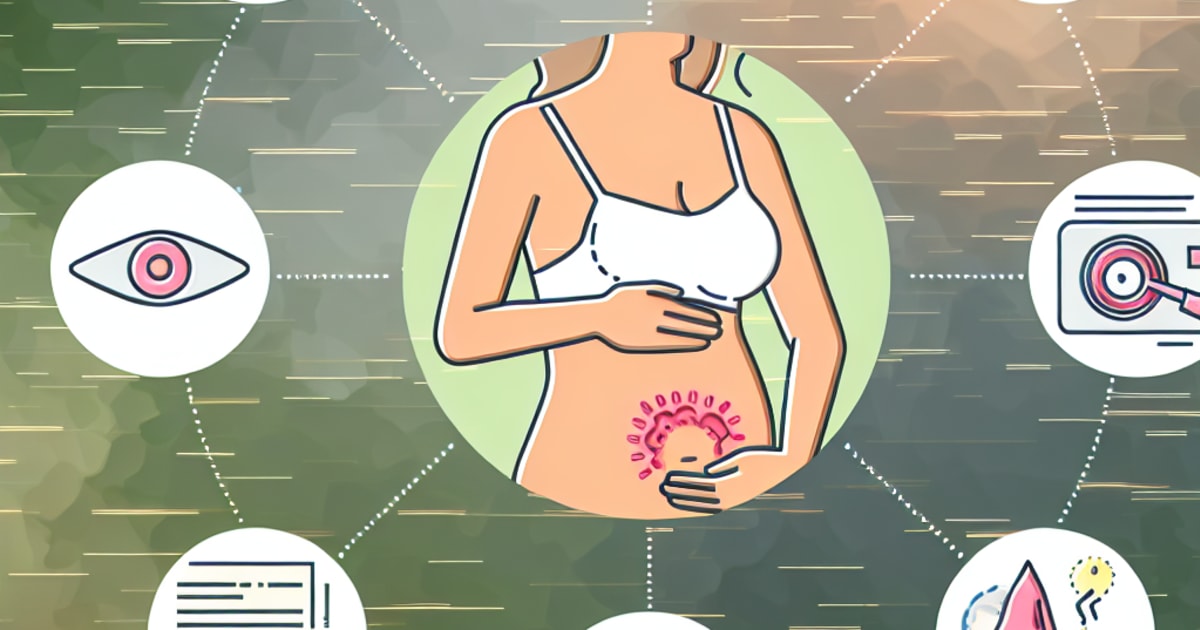
Early Pregnancy Symptoms - Recognizing the First Signs
1. Introduction to Early Pregnancy Symptoms
Pregnancy is a remarkable journey that signifies the beginning of a new life. It is a unique experience filled with excitement, anticipation, and sometimes, even anxiety. One of the primary aspects of pregnancy that often causes confusion and speculation are the early pregnancy symptoms. These can be subtle and easily mistaken for regular menstrual symptoms. This blog post aims to provide an insight into some of the most common early pregnancy symptoms, helping you to understand and identify them.
2. Understanding Early Pregnancy Symptoms
2.1 What are Early Pregnancy Symptoms?
Early pregnancy symptoms are signs that may indicate you're pregnant before you can confirm it with a pregnancy test. These symptoms typically begin to appear one to two weeks after conception, although this can vary from person to person. They can be similar to pre-menstrual symptoms, making them difficult to identify.
2.2 Why do Early Pregnancy Symptoms Occur?
Early pregnancy symptoms occur due to changes in hormones as your body prepares to support a developing fetus. The hormone human chorionic gonadotropin (hCG) rises rapidly during early pregnancy, which primarily triggers these changes.
3. Common Early Pregnancy Symptoms
3.1 Missed Period
A missed period is one of the most apparent signs of early pregnancy. However, a delayed or missed period could also be caused by stress, illness, or changes in weight or exercise routine.
3.2 Nausea and Vomiting
Often referred to as 'morning sickness,' nausea and vomiting are common early pregnancy symptoms. Despite the name, these symptoms can occur at any time of the day.
3.3 Breast Tenderness
Breast changes, including tenderness, swelling, or darkening of the areolas, can be an early sign of pregnancy. These changes are due to hormonal shifts in the body.
3.4 Fatigue
Feeling overwhelmingly tired or fatigued is another common symptom. This fatigue is caused by an increase in the hormone progesterone.
3.5 Frequent Urination
If you're pregnant, you might find yourself urinating more often than usual. This symptom is caused by an increase in blood flow to your kidneys.
3.6 Mood Swings
Mood swings are common during pregnancy due to hormonal changes. These can cause emotions to feel more intense and unpredictable.
4. When to Consult a Doctor
While these symptoms may indicate early pregnancy, they can also be associated with other conditions. Therefore, it's important to confirm pregnancy with a home pregnancy test or a blood test from your doctor. If you're experiencing severe symptoms or have health concerns, it's recommended to seek medical advice. Here are some situations when you should consult a doctor:
- Severe abdominal pain or cramping
- Heavy bleeding or painful periods
- Unexplained weight loss or gain
- Difficulty in breathing or chest pain
5. Conclusion
Recognizing early pregnancy symptoms can help you understand changes in your body and prepare for the journey ahead. However, symptoms can vary greatly from person to person, and not all women will experience the same symptoms or even any at all. It's always important to listen to your body and consult with your health care provider if you suspect you might be pregnant. Pregnancy is a unique experience, and understanding its early signs can help pave the way for a healthy and joyful journey.
